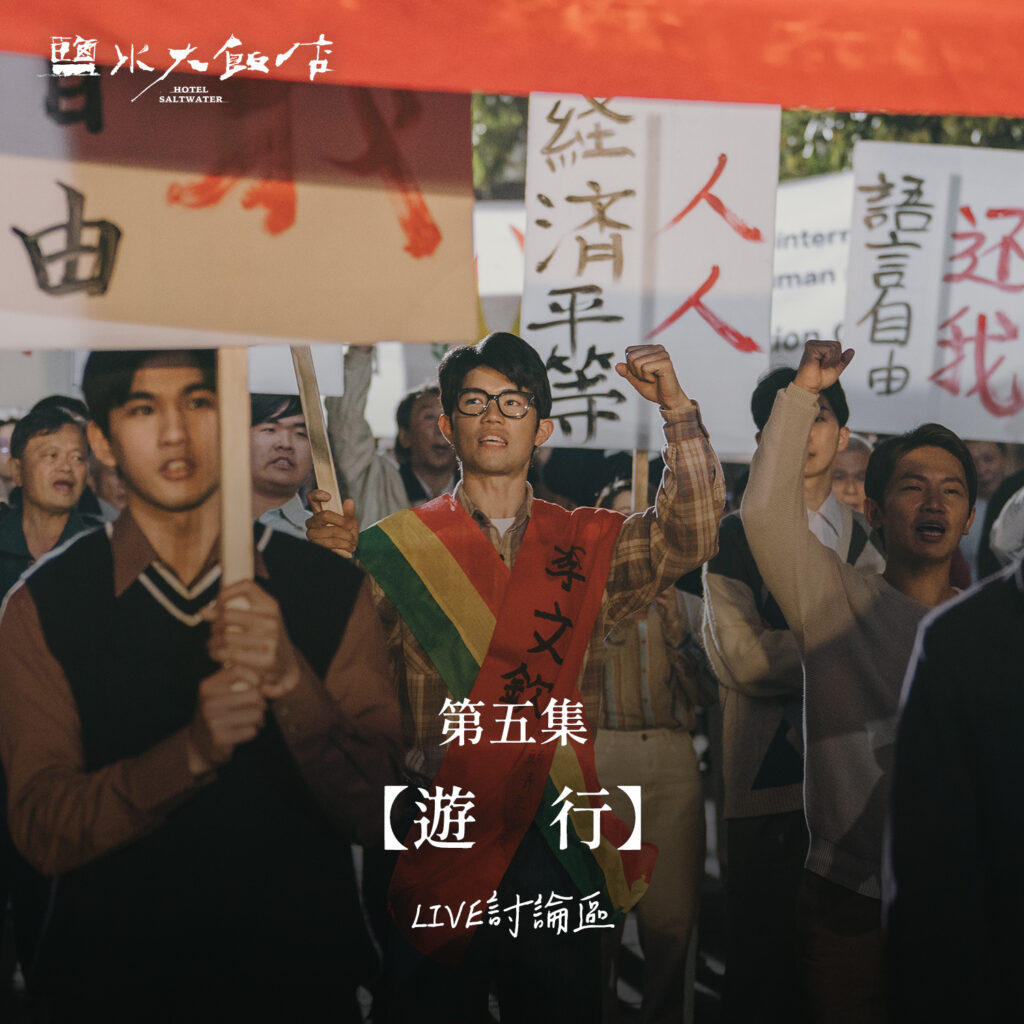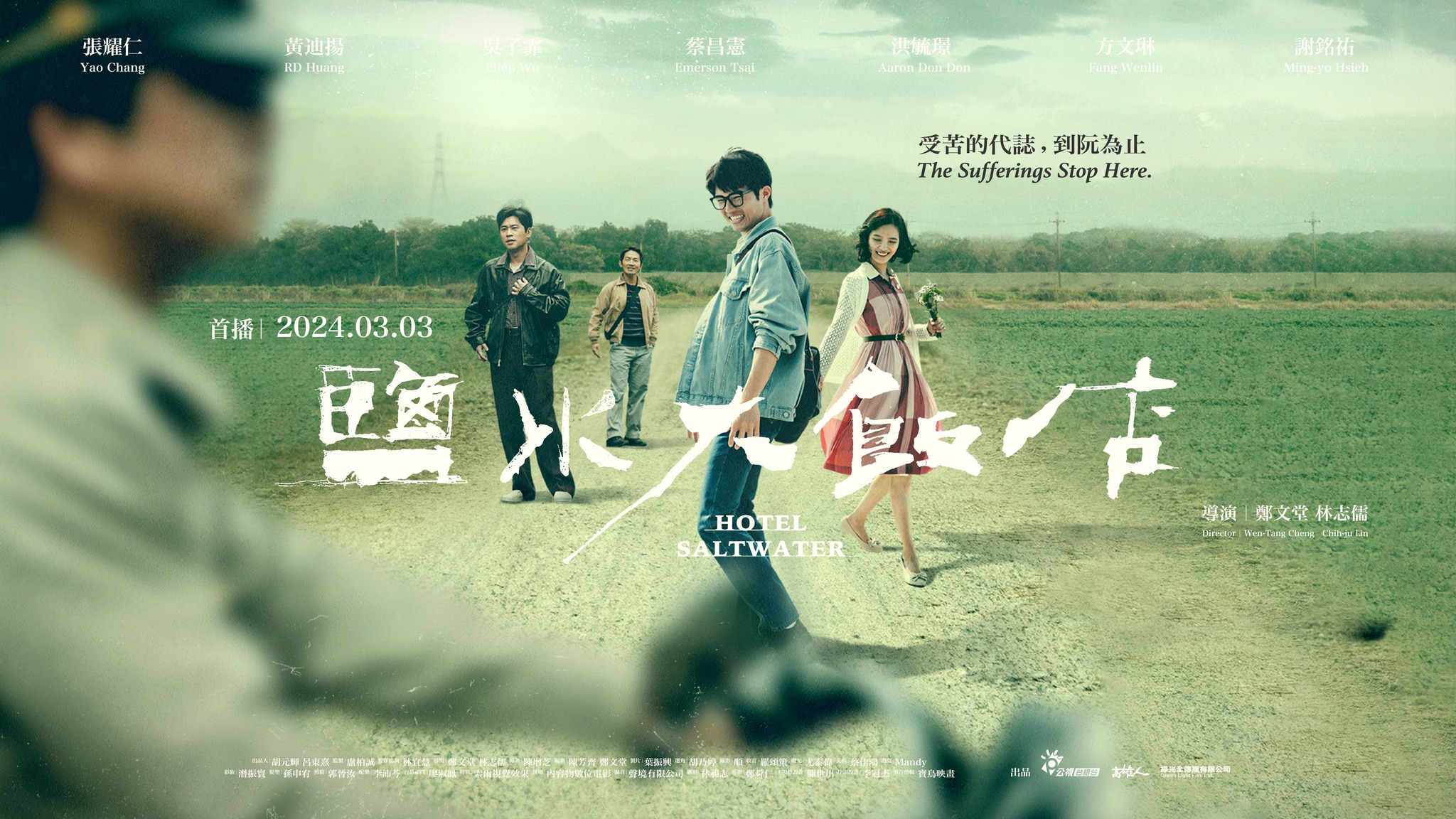by Brian Hioe
語言:
English
Photo credit: Hotel Saltwater/Facebook
IN ITS FIRST two episodes, Hotel Saltwater (鹽水大飯店) is a capable enough depiction of the farmers’ movement during the White Terror. In particular, Hotel Saltwater is based on the life and times of farmers’ movement activist and eventual DPP legislator Tai Chen-yao, taking its name from a biography of Tai’s early life.
Hotel Saltwater follows Lee Wen-qin, a young worker at the China Petroleum Corporation who is active in the dangwai movement. The show begins in media res, with Lee already jailed because of his activism, then flashing back to the time leading up to his arrest.
In particular, Lee and his friends are a group of young men who seek to pursue their dreams, but who increasingly find the political atmosphere in Taiwan stifling. They are excited by the romanticism of the early dangwai movement and themselves hope to push for pro-democracy reforms in Taiwan.

Photo credit: Hotel Saltwater
This quickly causes them to run afoul of the KMT. When the narrative of Hotel Saltwater picks up, Lee and his friends are already in trouble for participating in a local rally, and because the local youth cooperative that they run is rapidly gaining local influence.
This leads to contention with local KMT powerbrokers, who hope to co-opt Lee into the political machine, knowing that he is popular with the local community. This takes the form of strong-arming Lee and his family, given the debts that they owe as poor farmers–illustrating a traditional means of political control over rural areas used by the KMT.
Indeed, Hotel Saltwater stands out for its depiction of the political atmosphere of martial law Taiwan. Likewise, its protagonists’ early ties with the dangwai show how there were already waves of dangwai activism in the 1970s and 1980s, and that the dangwai came to comprise a public sphere of its own. Hotel Saltwater also highlights the class difference between working-class members of the dangwai and highly educated urban intellectuals in the movement.
But what Hotel Saltwater perhaps shows best is the social attitudes regarding involvement in politics. Lee is criticized for his political involvements by his family, who view his interest in politics as unrealistic dreams, and potentially dangerous. This illustrates the attitudes toward political engagement that have long persisted in Taiwanese society.
Hotel Saltwater works enough as a drama, with the cast demonstrating acting chops, if there are no standout performances. Still, as compared to, say, the hit success of Wavemakers, Hotel Saltwater perhaps struggles a bit because of its lack of truly charismatic characters.
Lee is depicted as happy-go-lucky, compassionate, and cheerful, and heroic in his pro-democracy ideals. But he still does not manage to be a three-dimensional character in a way that would draw viewers in. As such, though Hotel Saltwater is an admirable effort in its depiction of history, it does not shine in its own right. This proves a shame, when all the ingredients of a compelling drama should be there.



